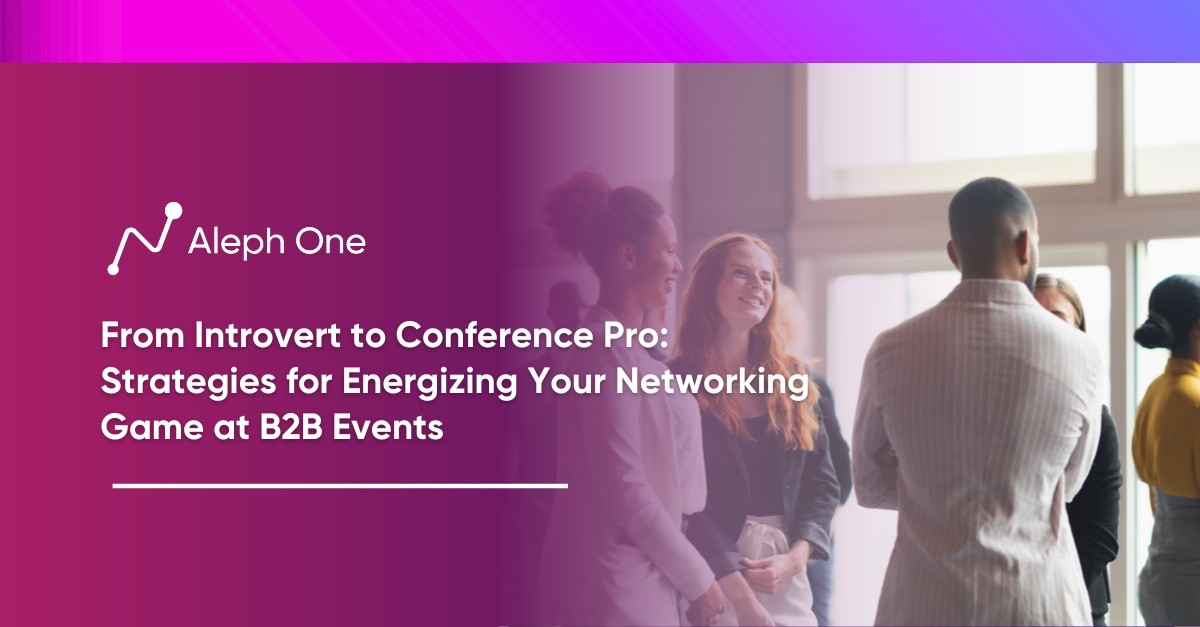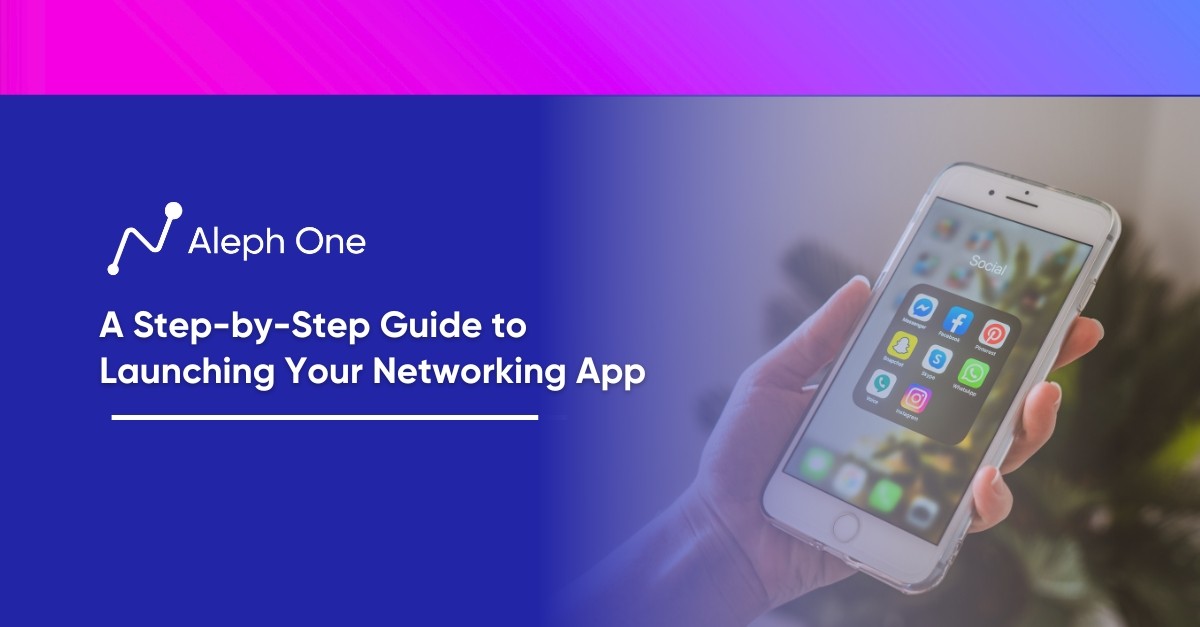Let’s work together to build something amazing. Share your project details and our team will reply to figure out the next steps to your success.

Networking events can be intimidating for introverts, but with the right mindset and strategies, they can transform from overwhelming to energizing experiences with the right attitude and approach. One crucial mindset shift is adopting an abundance mindset, which replaces the scarcity mentality often felt by introverts. Recognizing that there are enough opportunities and connections for everyone helps release feelings of competitiveness and anxiety. Introverts can build confidence, form authentic connections, and expand their network by focusing on a few meaningful conversations rather than trying to meet everyone. This article provides practical tips for introverts, including doing pre-event research, asking open-ended questions, finding familiar faces, setting manageable goals, taking breaks to recharge, and reflecting on successes. With practice and self-care, introverts can thrive at networking events and turn them into valuable opportunities for growth.

Adopt an Abundance Mindset: Release the Scarcity Mentality
As an introvert, viewing networking events through a “scarcity mindset is easy.” You may feel limited opportunities are available. This mindset can make events seem overwhelming and futile. However, adopting an “abundance mindset” can open you up to new connections.
With an abundance mindset, you recognize that there are enough opportunities and connections for everyone. This helps release feelings of competitiveness and lack of time to connect with every person. You realize you can positively impact and gain value from even just a few good conversations. Successful introverted networkers have found this mindset shift instrumental to overcoming feelings of scarcity and anxiety.
Adopting a “More Than Enough” Mentality
Here’s an example. Let’s say that Jill, an introverted entrepreneur, used to get overwhelmed walking into significant networking events. She felt pressure to speak with everyone and a sense of failure if she didn’t make a new connection with each person. That is, of course, until she learned to reframe her mindset. She started telling herself there were more than enough potential connections and opportunities. She realized she didn’t need to network with everyone to gain value, which helped her feel more at ease and open to meaningful conversations.
With the abundance mindset, Jill could start appreciating each connection for what it offered. She focused on listening, learning, and finding common ground. Over multiple events, she built up her confidence and a strong network of connections authentically. Jill found that the scarcity mindset was unfounded, and there were more opportunities and people to connect with than she had imagined.
The Power of Shifting Your Perspective
Shifting your perspective to an abundance mindset can be challenging but impactful. Remember that one conversation at a time is enough, and more opportunities are available than you realize. Release feelings of competitiveness and not having enough time. With practice, adopting an abundance mindset can transform networking events from overwhelming to energizing. Focus on listening, learning, and making authentic connections rather than meeting everyone. You’ll build confidence in your networking ability and a strong circle of connections over time.
Do Your Homework: Research Attendees and Prepare Talking Points
Walking into a significant networking event can be daunting if you feel unprepared for conversations. However, doing your homework ahead of time and researching fellow attendees can give you some talking points that will help you feel more at ease in striking up a conversation. To prepare for a networking event, you can:
- Leverage resources like the event app, attendee list, LinkedIn, and company websites to gain insights into people you hope to connect with.
- Look for shared connections, experiences, interests, or events you can bond over.
- Prepare a few possible discussion points in advance but keep them broad enough for a genuine, two-way dialogue.
For example, if you see that someone attended the same university as you, make a note to mention that and ask an open-ended question about their experience. If another attendee recently joined a company you’re interested in, prepare a talking point around what motivated them to take that new role. The key is to find authentic common ground, not just superficial observations.
Be Open to a Deviation From Your Plan
You’ll feel more confident starting a conversation with a few talking points. But be willing to deviate from your prepared discussion if the dialogue takes you in an unexpected but organic direction. The goal is to break the ice and get a genuine exchange of ideas flowing.
Many successful introverted networkers swear by this approach. They view it as channeling their natural preparation tendencies into a constructive strategy for connecting with others at events. The key is to not rely too rigidly on talking points but use them as a launchpad for an authentic discussion where there’s a free exchange of ideas between you and the other person.
Find the Balance Between Structure and Flexibility
When done right, this approach allows introverts to feel more at ease starting conversations without seeming like they have an “agenda” or are overly eager to talk about themselves. It provides enough structure to instill confidence and flexibility to enable a genuine human connection. With practice at multiple events, researching attendees and preparing broad talking points can become second nature and help any introvert improve their networking game.
Set a Goal and Start Small: Don’t Feel Pressure to Work the Whole Room
The pressure to connect with everyone in the room and maximize every opportunity can be anxiety-inducing. However, setting unrealistic expectations will only make you feel inadequate and defeated.
Rather than feeling you need to work the whole room, set a manageable goal for the event, such as having five meaningful conversations. Starting small will help you feel more at ease and build your confidence. Focus on connecting with just a few people at a time rather than scanning the room and feeling discouraged by how many people you “should” be networking with.
Gain Experience at Your Own Pace
Some successful introverted networkers started by setting a goal of just attending an event to acclimate themselves without any pressure to network. Over multiple events, they gradually set small goals to start short conversations, then build up to more lengthy discussions and follow-ups. Forcing yourself into an uncomfortable situation too quickly can be counterproductive. It’s better to start slowly and gain experience at your own pace.
Recharge When Needed
Don’t be afraid to take breaks when you feel overwhelmed. Step away from the action and find a quiet place to recharge and renew your energy. Then you can rejoin the event feeling calmer and ready to continue networking. Pushing through exhaustion often results in anxiety, inauthentic conversations, and feeling drained after the event.
With each event you attend, reflect on your experiences and how far you’ve come. Even having just 1-2 good conversations is progress to build upon for next time. Over time, you’ll find networking becoming more manageable and more natural. You’ll start recognizing familiar faces, picking up where you left off in previous discussions, and forming new connections beyond just one event. But start small, set manageable goals, and don’t be too hard on yourself as you build up your confidence as a networker. With practice, you’ll find your introvert-friendly networking groove.
Listen and Ask Questions: Take the Focus Off Yourself
One of the most effective strategies for networking at events is to listen to others and ask follow-up questions. This approach takes the spotlight off you, allowing you to make meaningful connections without feeling like all eyes are on you.
Ask Open-Ended Questions
When first meeting someone new at an event, express genuine interest in them by asking open-ended questions about their role, company, experience, interests, or goals. For example, you might ask, “How did you get started in this industry?” or “What excites you most about your latest project?”. Pay close attention to their responses and ask follow-up questions to show you are engaged and want to learn more. For instance, if they mention a new product their company just launched, ask, “How has the response been so far?” or “What’s next for that product?”.
It Pays to Show a Genuine Interest
Listening and probing with thoughtful questions achieves multiple benefits for introverts. First, it allows the other person to do most of the talking, so you can focus on the conversation rather than searching for the right thing to say. Second, it highlights your interest in them and their work, which most people will appreciate. Finally, the information you gain from listening and asking questions fuels an authentic discussion and future connections.
Let the Conversation Flow Naturally
The key is to ask questions you are genuinely curious about. While you want to take the focus off yourself, you also want to make a real connection based on shared interests and experiences. If there are any overlaps or synergies between your and the other person’s role or company, explore those further with your questions. But don’t force it – let the conversation flow naturally based on the context you gain from listening to their responses.
With the right mindset, listening and asking thoughtful questions can be an introvert’s superpower at networking events. At the same time, extroverts recharge by talking and recharge by listening. Tap into your natural strengths and gain valuable insights from your conversations. The connections will be more meaningful and long-lasting.
Find Your Anchor: Connect With a Familiar Face
Walking into a significant, crowded networking event can be daunting. Seeing a sea of unfamiliar faces and feeling the pressure to start conversations with strangers can quickly deplete your energy and confidence. One strategy to overcome this is to find an “anchor”—a familiar, friendly face you already know at the event.
Get Grounded Before Branching Out
Connecting with an anchor at an event’s start allows you to interact comfortably before branching out to new people. This could be someone you know from a previous occasion, a colleague from your company, or an acquaintance you connected with on LinkedIn who mentioned they were attending. Reach out to potential anchors beforehand and express your interest in saying hello at the event. Having a plan to meet up, even briefly, can help you feel more at ease going into the event.
Be Proactive About Finding a Familiar Face
Look for your anchor as soon as you arrive at the networking event. Scan the room for familiar faces, check the attendee list or event app to locate them, or walk around. Be bold and proactive in reaching out via a message or directly approaching them. Your anchor will likely appreciate you trying to connect, especially if they are introverted.
Keep it Light
Start with a casual conversation by asking how they have been or discussing a common interest or work topic you have previously connected over. There’s no need to dive into heavy business discussions right away. Your anchor’s familiarity will help you relax into the event setting and gain confidence for networking with new people. While you chat, scope out one or two new potential contacts you would like to meet. Ask your anchor for an introduction or advice on how to start a conversation. With your anchor’s support, you’ll feel motivated to branch out from your comfort zone.
Connecting with an anchor is a simple strategy that can make a big difference for introverts at networking events. Spotting a familiar face in a sea of strangers helps you feel instantly more at ease so you can focus your energy on meaningful new connections. Leveraging your anchor’s support and advice boosts you to start networking like a pro.
Recharge and Reflect: Take Time for Yourself After the Event
Even with the best preparation and strategies, networking events can be mentally and emotionally draining for introverts. It’s critical to schedule time to recharge and reflect after an event to avoid burnout and continue building your confidence and connections over the long run.
Tips for Unwinding After a Networking Event
Clear Your Mind with Movement
Limit screen time and do light exercises like walking or yoga. Activities that get you moving gently release feel-good hormones and help clear your mind. Spending time in nature is ideal, but even walking around the block can help shift your mood and mindset.
Phone a Friend
Connect with close ones who energize you. Call a friend or family member who supports your networking goals. Tell them how the event went.
Reflect on What Went Well
Reflect on your key takeaways and wins. Journaling about meaningful conversations and connections made at the event can help solidify them in your memory and maintain your motivation. Reflecting on small successes, like starting a conversation with someone new or exchanging business cards with a few people, will give you a sense of accomplishment and confidence for the next event.
Limit Caffeine
Limit consumption of caffeine, sugar, and alcohol which can exacerbate feelings of anxiety and depletion. Stay hydrated, eat healthy proteins and fats, and get enough sleep to allow your body and mind to recover. Lack of self-care will significantly impact your ability to network effectively at future events.
Recharge and Repeat
While networking events require effort and can feel draining, taking time for yourself after an event will help you recharge and build the resilience needed to become a conference pro. With regular practice, these self-care strategies will become second nature, and networking will feel less like a chore and more like an opportunity. The key is starting small, being kind to yourself, and maintaining an abundance mindset focused on growth.
Get the latest news and updates from Aleph One in your inbox.



